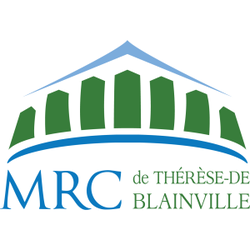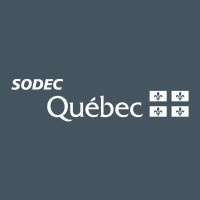
Open
MRC de Thérèse de Blainville — Social Economy and Sustainable Development Business Development Fund
Last Update: October 27, 2025
QC, Canada
Supports social economy and sustainable development business projects
Grant and Funding
At a glance
Funding available
Financing goals
Renovate your business/factory
Research and experimental development
Reduce the ecological footprint
See more
Eligible Funding
- Maximum amount : 15,000 $
- Up to 70% of project cost
Timeline
- Unspecified
Eligible candidates
Eligible Industries
- Educational services
- Health care and social assistance
- Arts, entertainment and recreation
- Other services (except public administration)
- Public administration
Location
- Thérèse-De Blainville
Legal structures
- Non-profit
- Public or Parapublic institution
- Social economy enterprise
- Non-financial cooperative
Annual revenue
- All revenue ranges
Organisation size
- All organization sizes
Audience
- Startups
Non-profit candidates
Sector of operation
- Environment
- Economic, Social and Community Development
Target groups
- Business owners / entrepreneurs
- Nonprofits / charities
Revenue structures
- Mixed revenue (50%+ earned)
Scope
- Regional
Overview
The Social Economy and Sustainable Development Business Development Fund (FDEÉSDD) of the MRC de Thérèse-De Blainville provides non-repayable financial contributions of up to $15,000 to support the creation, consolidation, and expansion of social economy enterprises and sustainable development projects in the region. Eligible activities include feasibility studies, business planning, start-up costs, capital expenditures, and initiatives for developing new products and services within non-profit organizations and cooperatives.
Activities funded
- Creation of new social economy enterprises or entrepreneurial projects within non-profit organizations and cooperatives.
- Development of innovative and impactful projects that address community needs and priorities identified by the region.
- Initiatives aimed at maintaining or creating sustainable, remunerated jobs within the territory.
- Expansion of existing social economy enterprises through new products or services.
- Consolidation plans to strengthen the viability and sustainability of existing social economy businesses.
Examples of admissible projects:
$ 14,700
Feasibility study for a local textile recycling social enterprise
$ 14,900
Launching a bilingual digital skills training program for youth
$ 14,300
Upgrading a daycare’s energy efficiency with solar installation
$ 15,000
Expanding a community bike share with new stations and fleet
$ 14,500
Launching a zero-waste refill grocery pilot with retail upgrades
$ 14,800
Developing a mobile compost collection service for local SMEs
Eligibility
- The applicant must have its head office and conduct the majority of its activities within the MRC de Thérèse-De Blainville.
- The applicant must be a non-profit organization or a cooperative.
- The company must demonstrate autonomous management and democratic governance.
- The project or enterprise must generate social and economic benefits for the community through the production and sale of socially useful goods or services.
- The applicant must operate in a market economy context and ensure user or client participation to generate autonomous revenue.
Who is eligible?
- Non-profit organizations (incorporated under Part III of the Companies Act of Quebec)
- Cooperatives (incorporated under the Cooperatives Act)
- Social economy enterprises operating on the territory of the MRC de Thérèse-De Blainville
Who is not eligible
- Projects involving the relocation of the head office or a branch outside the territory of the MRC de Thérèse-De Blainville.
- Companies or projects controlled by entities other than the promoting group.
- Projects with main or secondary activities that are controversial (including sexual, religious, or political activities).
- Businesses acting exclusively as subcontractors for a single client.
- Companies operating as franchises or pursuing speculative activities.
- Projects involving Centres de la petite enfance (CPE), and retail or restaurant enterprises in the startup phase, which are not prioritized.
Eligible expenses
- Professional fees and consulting expenses for studies, business plan preparation, or project-related expertise.
- Market study and feasibility study costs.
- Start-up expenses, including incorporation fees, initial advertising, and security deposits.
- Capital expenditures such as land, buildings, production equipment, rolling stock, computer equipment, office furniture, and office equipment.
- Acquisition of technologies, software, applications, and patents (excluding research and development activities).
- Initial inventory costs.
- Operational costs strictly tied to project realization.
- Promotion and marketing expenses specifically for new products and services (including professional marketing fees and project-related management costs).
Eligible geographic areas
- Companies with their head office and most activities located within the territory of the MRC de Thérèse-De Blainville.
Selection criteria
- Demonstrated potential for medium- and long-term profitability and viability of the enterprise.
- Project does not create direct competition with existing social economy initiatives in an insufficient market.
- Operating in a sector that is not saturated or deemed non-priority.
- Promoter possesses adequate knowledge, skills, and experience relevant to the project domain.
- Demonstrated market potential and originality, along with clear job creation potential and essential need for financial aid.
How to apply
1
Confirm eligibility requirements
- Verify that the organization or promoter meets all eligibility conditions specific to the FDEÉSDD
- Ensure the head office and most activities are in the Thérèse-De Blainville MRC
- Confirm the organization's legal status as a non-profit or cooperative with democratic governance and financial autonomy
- Check that the project produces socially and economically beneficial effects for the community and operates in a market economy
- Review the exclusion criteria for ineligible projects
2
Prepare application documents
- Gather required documentation, such as a completed application form (except for Pre-startup stream), comprehensive business plan and financial forecasts for the first two years
- Demonstrate the essential nature of the financial assistance and project viability
- Prepare proof of financial contribution representing at least 30% of the project cost
- Ensure all supporting documents and evidence of compliance are ready
3
Submit application
- Submit the application and supporting documents during the project call period (one or two times per year depending on available funds)
- Ensure submission within deadlines set by the MRC
- Allow the economic development advisor to review the file for initial eligibility
4
Evaluation and decision process
- Wait for the Eligibility Committee to analyze and evaluate the submitted project
- Respond to possible requests for additional information or project presentation before the FDEÉSDD Committee
- Receive notification of the council’s decision regarding acceptance or rejection and the amount of funding granted
5
Finalize agreement and monitoring
- Sign a memorandum of understanding specifying disbursement and obligations
- Present required permits, authorizations, and all necessary financing before funds are released
- Begin the project within 12 months after the board’s approval
- Meet the economic development advisor of the MRC at least twice during the agreement for project follow-up
Additional information
- A monitoring mechanism requires beneficiaries to meet at least twice with an economic development advisor from the MRC during the agreement period.
- Financial assistance is conditional on the availability of annual budget allocations to the fund.
- A final activity and financial report must be submitted at the end of the project, including supporting invoices.
- The committee members overseeing project evaluations must sign confidentiality and conflict of interest agreements annually.
Apply to this program
Frequently Asked Questions about the MRC de Thérèse de Blainville — Social Economy and Sustainable Development Business Development Fund Program
Here are answers to the most common questions about the MRC de Thérèse de Blainville — Social Economy and Sustainable Development Business Development Fund. This section explains what the program is, how much funding is available, eligibility requirements, application deadlines, and other important details to help you determine if this grant is right for your business.
What is the MRC de Thérèse de Blainville — Social Economy and Sustainable Development Business Development Fund?
How much funding can be received?
Who is eligible for the MRC de Thérèse de Blainville — Social Economy and Sustainable Development Business Development Fund program?
What expenses are eligible under MRC de Thérèse de Blainville — Social Economy and Sustainable Development Business Development Fund?
Who can I contact for more information about the MRC de Thérèse de Blainville — Social Economy and Sustainable Development Business Development Fund?
Where is the MRC de Thérèse de Blainville — Social Economy and Sustainable Development Business Development Fund available?
Is the MRC de Thérèse de Blainville — Social Economy and Sustainable Development Business Development Fund a grant, loan, or tax credit?
Apply to this program
More programs like this

Grant and FundingOpen
ÉcoPerformance — Recommissioning of building mechanical systems
Gouvernement du QuébecFunding to optimize the operation of building mechanical systems

Grant and FundingClosed
NovaScience Program - Support for projects in scientific culture and innovation
Gouvernement du QuébecNovaScience promotes scientific culture and innovation development

Grant and FundingClosed
Community Organization Support Program (PSOC)
Department of Health and Human ServicesSupports Quebec community organizations in health and social services

Grant and FundingClosed
Support for Innovation and Productivity for Québec manufacturing companies (SIPEM) - Part 2
PROMPTBoost productivity through targeted technological innovations

Tax CreditsOpen
Tax holiday for a new business created to commercialize intellectual property
Ministère de l'économie, de l'innovation et de l'énergie du Québec (MEIE)Tax credit for commercialization of intellectual property (IP) in Quebec

Loans and Capital investmentsClosed
Program Supporting the Development of Tourist Attractions — Stream 1
Investissement Québec (IQ)Loans to develop Quebec tourist attractions

Grant and FundingOpening Soon
Flood Resilience and Adaptation Program (PRAFI) - Resilient Development Component
Ministry of Municipal Affairs and HousingSupports municipal flood resilience and adaptation infrastructure projects

Grant and FundingOpening Soon
Flood Resilience and Adaptation Program - Community Resilience and Relocation Component
Ministry of Municipal Affairs and HousingSupports municipal relocation and resilience projects in flood-risk areas

Grant and FundingOpen
Roulez Vert — Rebate for charging station at work
Gouvernement du QuébecGet financial aid to install electric charging stations at your Quebec business

Grant and FundingOpen
Additional support for the circulation of shows
Société de développement des entreprises culturelles (SODEC)Financial support for touring Quebec music and comedy shows
Sign up to our platform to access the MRC de Thérèse de Blainville — Social Economy and Sustainable Development Business Development Fund information sheet for free
Get access to 4,000+ programs, practical guides, personalized alerts, and an AI assistant to support your grant applications.